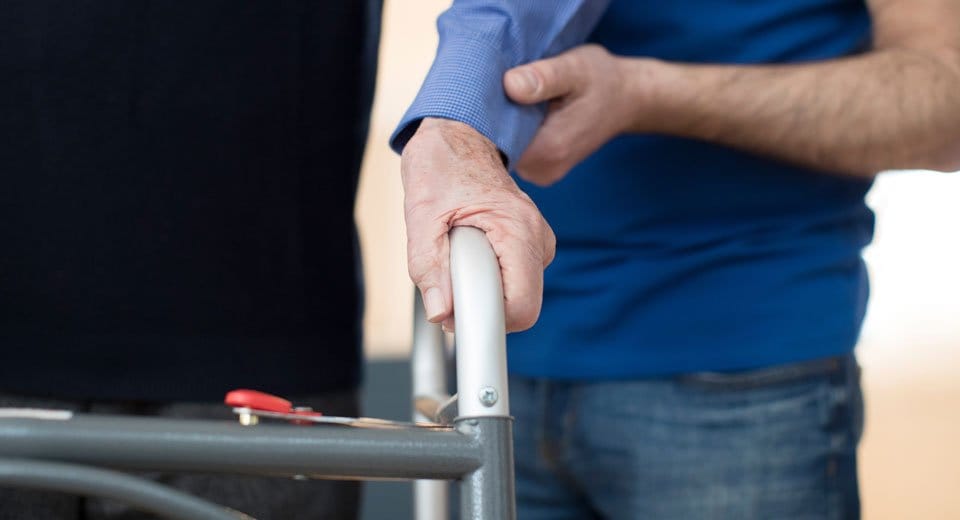Is dad too frail for surgery?

Are you or someone you love too frail for surgery or even a minor medical procedure?
It’s a question doctors, patients and families may be asking more as research shows patients who already have health issues are more likely to die following all levels of surgery, even if the surgery was considered technically a success. Frailty, more than age, predicted the risk for more than 430,000 surgical patients, according to research published recently in JAMA Surgery. Researchers concluded that was also true for procedures considered low-risk, such as cystoscopy, in which doctors insert a tiny camera through the urethra into the bladder. Cystoscopy is used to diagnose conditions such as frequent urinary tract infections, a common complaint among the elderly.
“The findings suggest that even minor surgical procedures are associated with high risk for patients with frailty and that surgeons and referring physicians should consider whether the potential benefits of surgery warrant the increased risk,” researchers concluded. They suggested that all surgical candidates be screened for frailty.
The research raises ethical and practical risk-benefit questions for patients, doctors and families.
“With the technology we have today, we are now able to extend the lives of basically anyone. The moral question is, should we?” Ricardo Nario, MD, Director of Hospitalists at Cape Cod Hospital, said. Hospitalists care for patients who are admitted to the hospital for medical treatment.
Frailty is a medical condition itself, although difficult to define, Dr. Nario said. “For me I think it’s someone who has begun to lose the ability to care for themselves.”
What to Look For
There are several hints that someone might be frail and be higher risk for surgery or some treatments, he said. It has more to do with general health than age, although older patients may be more susceptible. For example:
- Is the patient already weak or requiring help with daily activities? What’s the patient’s grip strength or gait?
- Does the patient have poor balance or require a walker?
- Is the patient using oxygen to help with breathing, or suffer from a condition such as chronic obstructive pulmonary disease (COPD)? Is the patient a smoker?
- Has the patient been losing weight or have a poor appetite? Will the patient be able to get enough nutrition to heal properly from the surgery or to handle the stress of the treatment?
These issues might indicate that the stress of a procedure or surgery is too much for a patient to be able to recover, even to their previous level of strength, Dr. Nario said. He tries to ask the question: will you recover to where you are now, or will you decline further from this procedure? But, he said, there’s no real test to know if a patient is going to recover or not, and sometimes doctors only spot the issues in hindsight.
“That’s where the art of medicine still is, trying to figure out where these patients are on the spectrum of their lives,” Dr. Nario said.
Make a Plan
Frailty may likely affect all of us at some point as we age, he said.
“I don’t know if we can prevent frailty long-term because the body’s not meant to live to 100 years old,” he said. However, there are things we can do to stave it off, such as quitting smoking, exercise and watching our diets, he added.
And we all need to have conversations with our doctors and our families on what kind of medical treatment we envision as we age, he said. When families or patients are in the heat of a medical crisis, they may make decisions that unnecessarily prolong life, or cause hardship or pain, he said. So, it’s important that patients have the proper paperwork – such as a healthcare proxy that gives someone they trust the ability to make medical decisions. That’s particularly important as healthcare relies more on hospitalists who may first meet patients in the hospital at the end of their lives, Dr. Nario said. It’s not like the old days when primary care physicians, who knew their patients more personally, made rounds in hospitals.
Donald Guadagnoli, MD, chief medical officer at Falmouth Hospital, started an initiative in 2015 to get Cape Codders talking about this very issue. Working with community organizations, he created the Quality of Life Task Force to find resources and ways to educate clinicians, caretakers, emergency personnel, patients and families about treatment and end-of-life issues.
The task force recommends that everyone over the age of 18 fill out a healthcare proxy and discuss their wishes around end-of-life care with family. They also recommend that everyone with an advancing chronic illness fill out a Massachusetts Medical Orders for Life-Sustaining Treatment (MOLST) form, which spells out exactly what kinds of interventions you want or don’t want, should you be incapacitated and unable to speak for yourself. Other tools, such as the Five Wishes form, are useful for starting the care conversation with families.
As the Baby Boomers age, Dr. Nario said, how and when to treat health problems in frail patients is an issue that will affect society as a whole.
